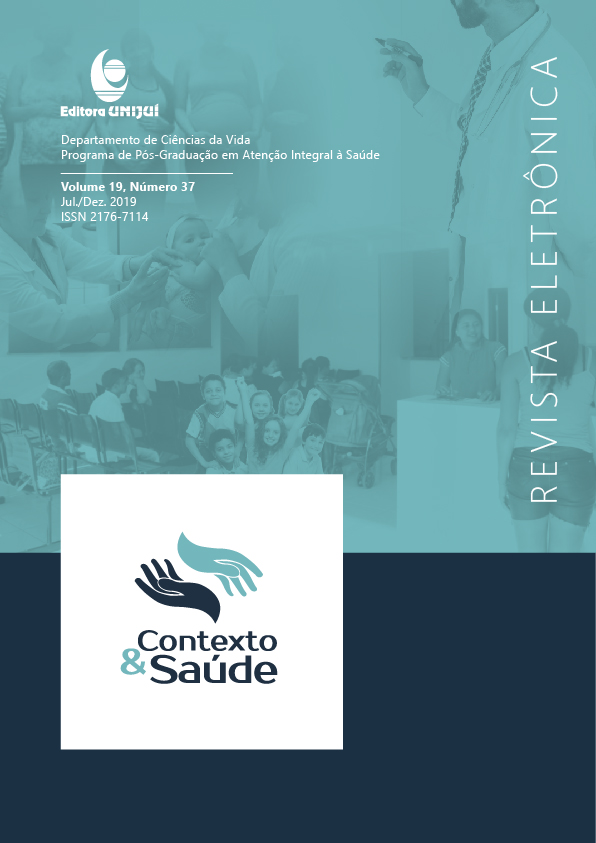AMAMENTAÇÃO: INFLUÊNCIA DO TEMPO DE TRANSIÇÃO DA SONDA PARA VIA ORAL EM PREMATUROS
DOI:
https://doi.org/10.21527/2176-7114.2019.37.5-10Keywords:
Aleitamento Materno, Unidades de Terapia Intensiva Neonatal, Transição NutricionalAbstract
OBJETIVO: Este trabalho busca apresentar quais fatores podem influenciar na prática da amamentação em RNPT, e observando de que forma a transição alimentar de sonda para via oral pode intervir no sucesso do aleitamento materno. METODOLOGIA: Estudo do tipo descritivo de caráter observacional e documental transversal. A população é composta RNPT, de ambos os sexos, que estiveram internados em UTIN, aceitando participar da pesquisa, através do TCLE. Foram incluídos os RN menores de 37 semanas, e excluídos aqueles prematuros cujos pais ou responsáveis não aceitaram participar da pesquisa e óbitos. A amostra foi constituída por 28 RNPT. RESULTADOS: A idade gestacional média foi de 32,59±2,95 semanas. Na admissão da UTIN 27 (96,42%) estavam com prescrição de nada por via oral (NPO). As vias utilizadas para a nutrição dos RNPT foram a nutrição parenteral (NPT), e nutrição enteral (NE), com mediana de 10 dias de tempo de uso. Durante a utilização da sonda enteral a estimulação sensório-motora oral foi realizada em 25 (92,60%) dos RNPT, na alta a mãe foi questionada se havia recebido orientações sobre aleitamento materno e 23 (82,14%) confirmaram. CONCLUSÕES: O tempo e a prevalência do uso de SOG sugerem interferência na manutenção da amamentação exclusiva, pois a maioria teve alta com o uso de fórmulas. O BLH do hospital tem influencia muito positiva no fato de grande parte dos RNPT terem iniciado a VO no seio materno. Os resultados quanto à influência do tempo de uso de sonda na amamentação não foram expressivos nesta pequena.
Downloads
Published
How to Cite
Issue
Section
License
By publishing in Revista Contexto & Saúde, authors agree to the following terms:
The works are licensed under the Creative Commons Atribuição 4.0 Internacional (CC BY 4.0) license, which allows:
Share — to copy and redistribute the material in any medium or format;
Adapt — to remix, transform, and build upon the material for any purpose, including commercial.
These permissions are irrevocable, provided that the following terms are respected:
Attribution — authors must be properly credited, with a link to the license and indication of any changes made.
No additional restrictions — no legal or technological measures may be applied that restrict the use permitted by the license.
Notes:
The license does not apply to elements in the public domain or covered by legal exceptions.
The license does not grant all rights necessary for specific uses (e.g., image rights, privacy, or moral rights).
The journal is not responsible for opinions expressed in the articles, which are the sole responsibility of the authors. The Editor, with the support of the Editorial Board, reserves the right to suggest or request modifications when necessary.
Only original scientific articles presenting research results of interest that have not been published or simultaneously submitted to another journal with the same objective will be accepted.
Mentions of trademarks or specific products are intended solely for identification purposes, without any promotional association by the authors or the journal.
License Agreement (for articles published from September 2025): Authors retain copyright over their article and grant Revista Contexto & Saúde the right of first publication.

